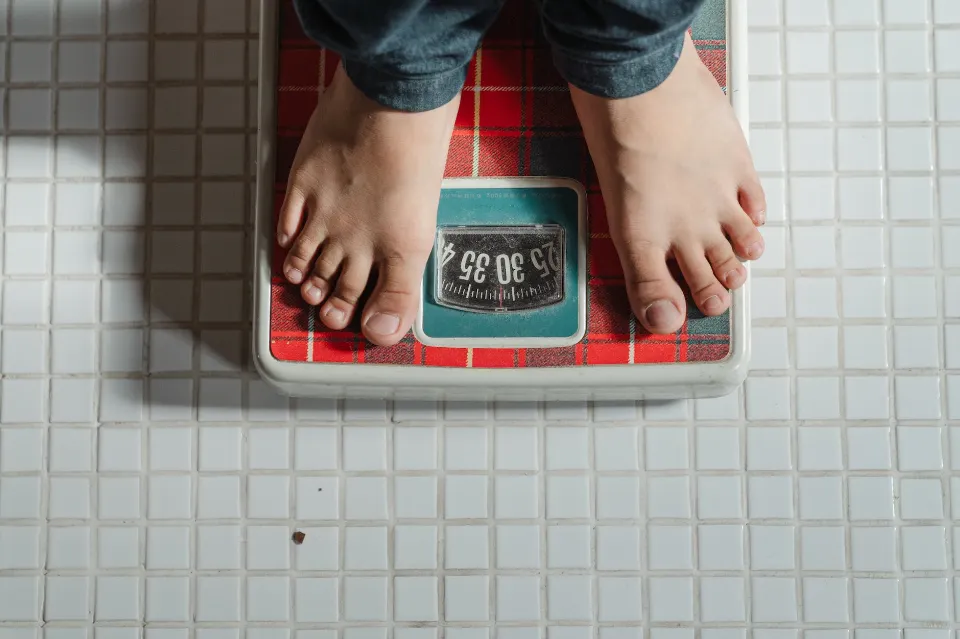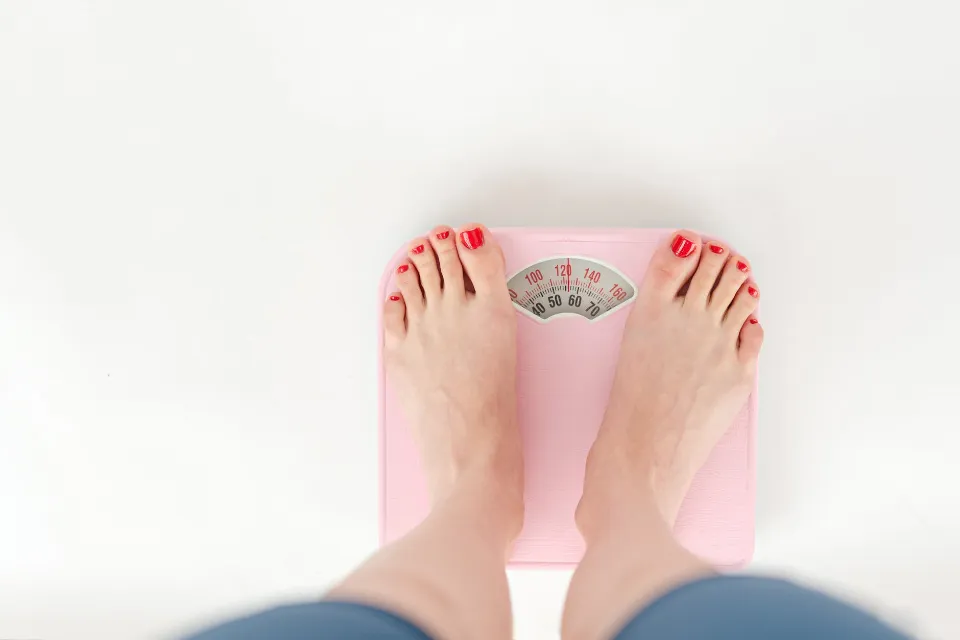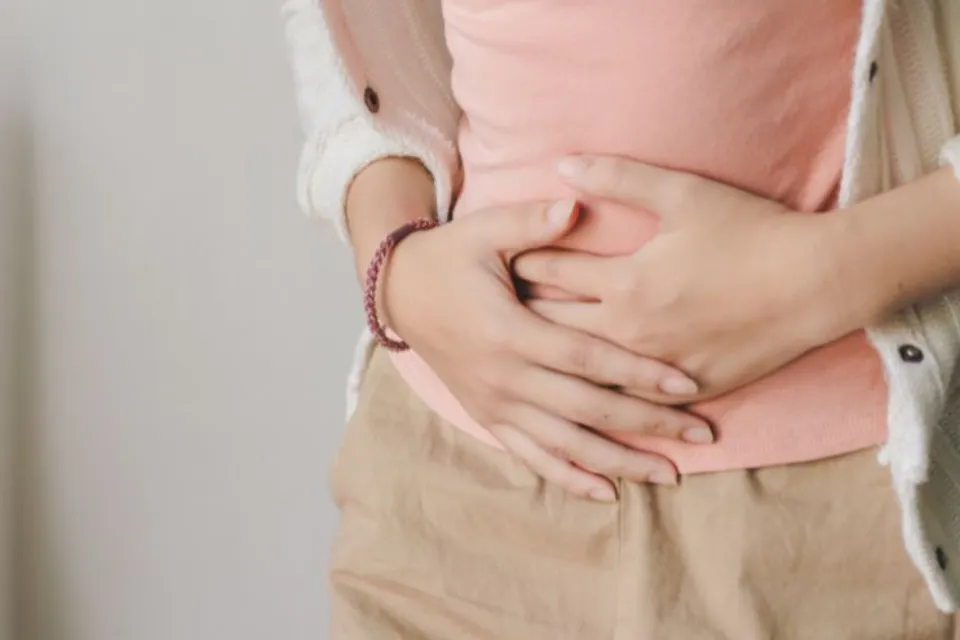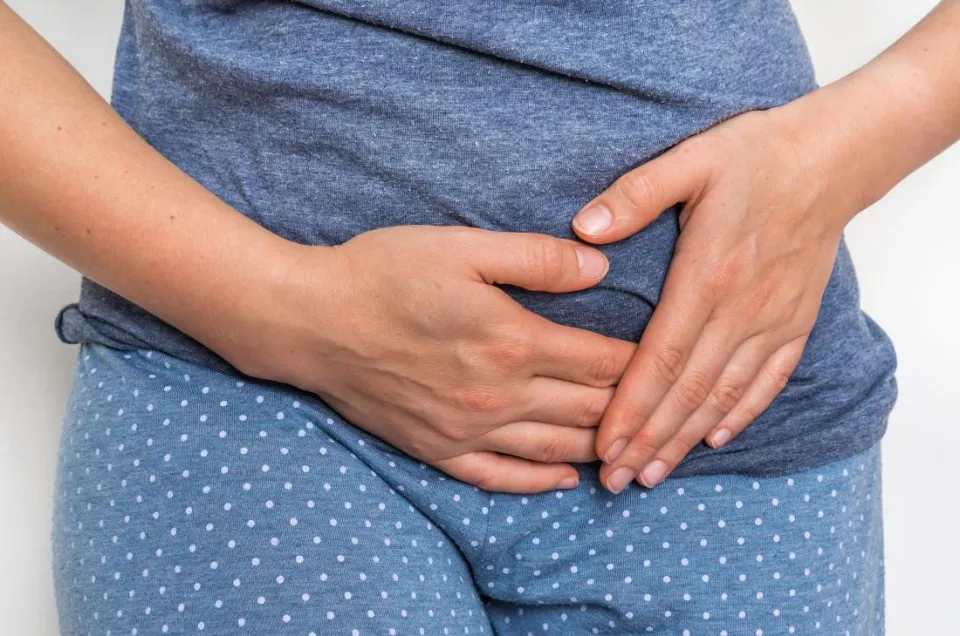
When Does Ovulation Weight Go Away – When Will It Disappear?
The temporary weight gain that can occur during ovulation sometimes leaves people wondering when it will go away. In this article, we’ll examine the ovulation weight phenomenon and offer details on how long it lasts before dissipating on its own.
Understanding this procedure can reassure people and help them better understand the cycles that naturally occur in their bodies.
What is Ovulation?

Millions of immature eggs, which have been in every woman since she entered the world and are now patiently waiting to be released, were present at birth.
Women of childbearing age experience their period once a month when they are in good health. A mature egg is released from one of the female ovaries during the ovulation phase of this cycle.
In the course of the 28-day menstrual cycle, it primarily occurs between days 10 and 14.
The journey of the egg through the constricting fallopian tube begins when it is released.
Every healthy woman under the age of menopause should anticipate this monthly recurrence.
Causes of Ovulation
You’re swelling up primarily because of ovulation. The follicular and luteal phases of your ovulation are its two main events. In the follicular phase, which lasts for the first two thirds of your cycle, the ovary selects the follicles or egg sacs that it will nurture.
In order to encourage the maturation of the eggs in the follicles, the body then produces follicle-stimulating hormones (FSH) and luteinizing hormones (LH). Growth factors (proteins that promote the growth of particular tissues) are then released as estrogen and testosterone levels rise (the female and male hormones).

The luteal phase is the second half of your cycle. The beginning of this phase will see a further increase in estrogen levels as the uterine lining thickens. Progesterone levels will rise in this area as well to get ready for the anticipated pregnancy. Your hormonal levels will drop and then rise toward the end of your cycle.
The events that take place during your period are thus easy to imagine. Hormone levels are at an all-time low at the beginning. The party then starts, and the town is now being painted red by an increasing amount of hormones. The chemical club then erupts into a wild party in the middle. All the fun eventually comes to an end by the time your cycle is over, and the happy hormones return to their regular routines.
Symptoms of Ovulation
- Appetite Changes
At the start of your menstrual cycle, fluctuating hormone levels cause premenstrual cravings for carbohydrates and sugars. Then, as your period progresses and you begin to feel tired and experience mood swings, your body decides that it needs to eat frequently (including frequent snacks) in order to maintain stable blood sugar levels and moods. Additionally, the fact that progesterone and testosterone, which fluctuate during ovulation and may act as appetite stimulants, may cause you to feel the urge to eat more than usual, doesn’t help.
Low spirits can also be brought on by hormonal imbalance. You feel happier and calmer as a result of the sweet and fatty sinful treats, which release serotonin. So the next time your cycle comes around, don’t be too hard on yourself if you seem to be planning a self-destructive binge—it could just be your hormones.
- Water Retention and Selling
What about the water retention that contributes to weight gain? That’s right, your hormones’ erratic behavior may once more be the cause. These hormones regulate your body’s processes and maintain equilibrium between fluid retention and loss. Your tissues store more water than they should when the controls are off, leading to water retention and weight gain.
Your body may retain more water due to earlier estrogen, which will make you feel heavier. You may feel bloated and puffy, similar to a freshly whipped marshmallow, because your body is acting as a water reservoir during ovulation.
Do You Gain Weight When Ovulating?

Because the progesterone hormone slows down digestion, you might feel sated and uneasy.
However, despite how uncomfortable ovulation bloating is, it doesn’t have a long-term impact on your weight.
Estrogen is to blame if you do notice that you are a couple of pounds heavier when you are ovulating.
However, estrogen is not always bad (despite the fact that this article gives it a bad rap).
It regulates your menstrual cycle, manages your cholesterol levels, and safeguards your bones—all admirable feats.
It also happens to cause your body to retain water, which results in a slight weight gain and discomfort.
You know, nobody is perfect.
Those annoying food cravings should also not be forgotten.
Everything should go back to normal within a week, but if your weight and discomfort spike during ovulation, there are things you can do to help:
- Increase your consumption of natural diuretics like ginger, cucumber, and pineapple to help you to pee
- Avoid high-sodium (salty) foods can also help because sodium makes your body hold onto water
- While it sounds counterintuitive, drinking extra water actually helps your body to flush out sodium
- You could also shake things up with mint or fennel tea, which helps to get any gas moving
- Get on the probiotic train and give your healthy gut bacteria a super boost
Lastly, be certain that you are consuming enough potassium and magnesium.
Your body’s water levels are maintained in balance by these electrolytes.
How Much Weight Do You Gain During Ovulation?
During or right after ovulation, weight gain is typical. During ovulation, headaches, bloating, and weight gain are thought to be normal. Ovulation-related weight gain has no set upper limit. This extra weight varies from person to person as a result of these factors. But experts want to let women know that the weight will go away soon. In light of this, there is no reason to be concerned.
Does Bloating During Ovulation Mean Pregnancy?
You cannot predict whether you will become pregnant in a given month based on how bloated you feel when you ovulate.
Having said that, due to the previously mentioned rising progesterone levels, bloating is a typical early indication of pregnancy.
If you typically ovulate on day 14 of your cycle but experience more bloating than usual by day 28, this could be a sign of an early pregnancy.
Having said that, it might also be PMS.
Ah, sometimes it seems as though we women are destined to lose.
When to Seek Help With Ovulation Bloating
Although bloating can be a typical luteal phase symptom during the menstrual cycle, if it persists for more than a few days, you should probably see a doctor to make sure there isn’t something more serious causing your bloat. Medical conditions like endometriosis, polycystic ovarian syndrome (PCOS), or an ovarian cyst can occasionally be to blame for bloating during ovulation. A physician needs to rule these out.
While going through their menstrual cycle, many women experience bloating. Typically, it is nothing to worry about. If it gets uncomfortable, start by making a few dietary adjustments, working out, and taking supplements that reduce gas. The best course of action is to see a doctor if bloating persists for more than a few days or becomes extremely painful. Just keep in mind that you are not alone in experiencing this typical ovulation symptom.
The Bottom Line
Why does weight gain occur around ovulation? Low progesterone levels, altered appetite, water retention, and altered insulin levels may all be contributing factors. These modifications typically only last a short while before settling into equilibrium. Do not attempt to reduce your weight in any way, such as by stopping your medication without first consulting a doctor. Always consult your doctor before making changes to your diet or way of life.





Average Rating